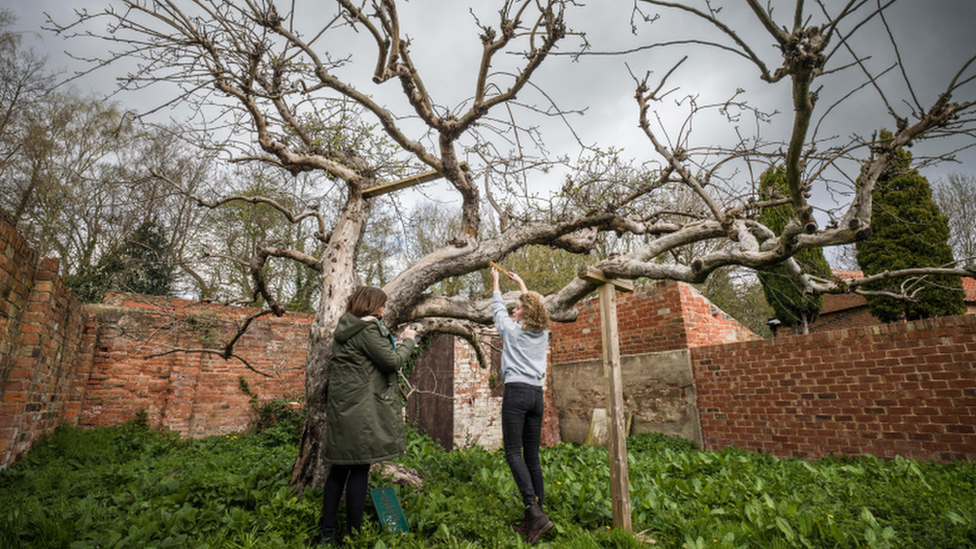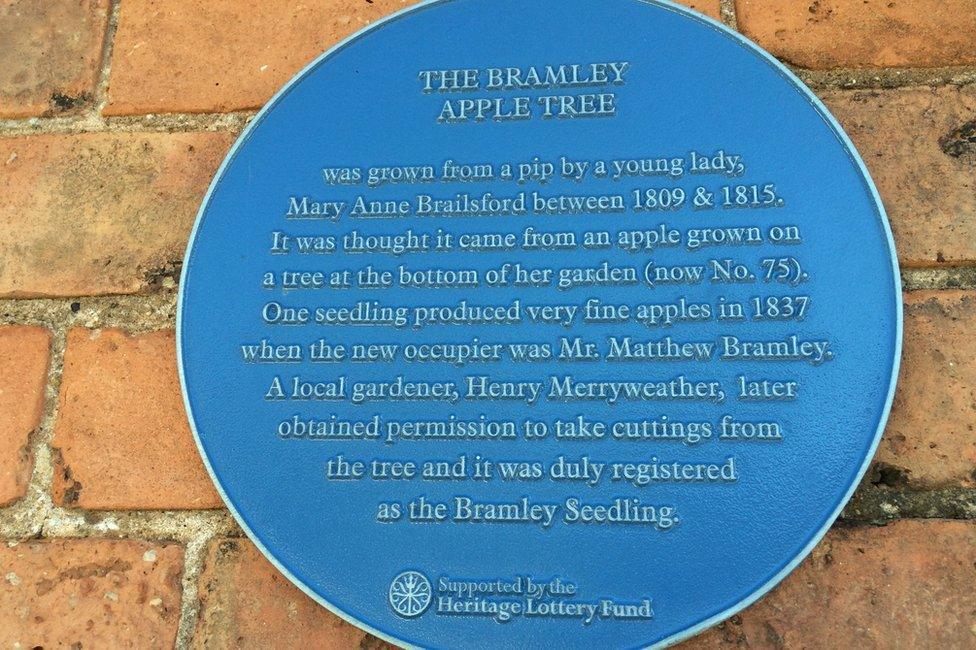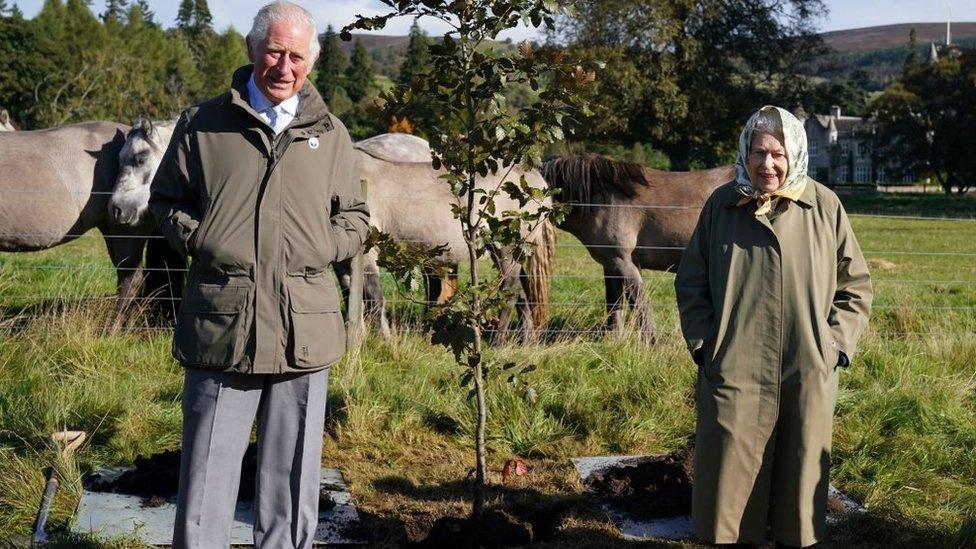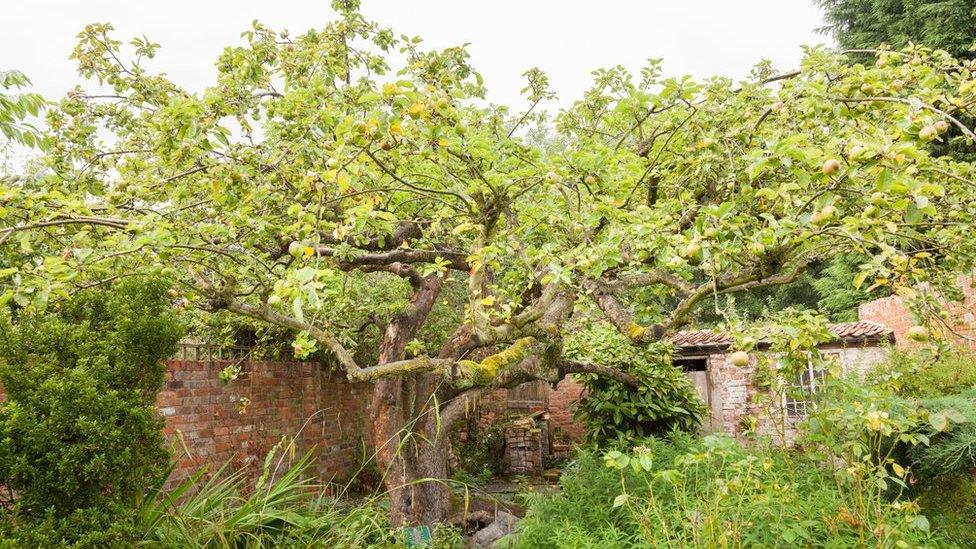Platinum Jubilee: Original Bramley apple tree dedicated to Queen
- Published

The tree is dying from a fungal infection
The original Bramley apple tree has been chosen as part of a nationwide network of ancient trees to be dedicated to the Queen.
The Queen's Green Canopy will see new trees planted, as well as ancient woodlands and forests protected, for the Platinum Jubilee celebrations.
The tree was sown by a girl called Mary Ann Brailsford in Southwell, Nottinghamshire, in 1809.
Nottingham Trent University said the tree was part of the national heritage.
'Cherished symbol'
The university has been the custodian of the tree since 2018, in a bid to extend its life.
The tree, which was grown from a pip more than 200 years ago in a garden on Church Street, Southwell, is dying from an incurable fungal infection.
It will be one of 70 ancient trees to be dedicated to the Queen.

The plaque commemorating the planting of the original Bramley apple tree
The first recorded sale of a Bramley was on 31 October 1862, when Henry Merryweather sold three Bramley apples for two shillings.
Today there are more than 300 Bramley growers in England, with about 83,000 tonnes of the apples grown annually in the UK alone.
The apples are very large and typically used in desserts.
University vice-chancellor, Professor Edward Peck, said: "The Bramley apple is a much-loved part of our local and national heritage and it is fitting that the original tree has been acknowledged and celebrated in this way.
"[The university] is proud to be custodian of the tree and the university will continue to engage with the local and wider community to promote the heritage and science of the Bramley apple."

Follow BBC East Midlands on Facebook, external, Twitter, external, or Instagram, external. Send your story ideas to eastmidsnews@bbc.co.uk.
Related topics
- Published1 May 2022

- Published8 May 2018
